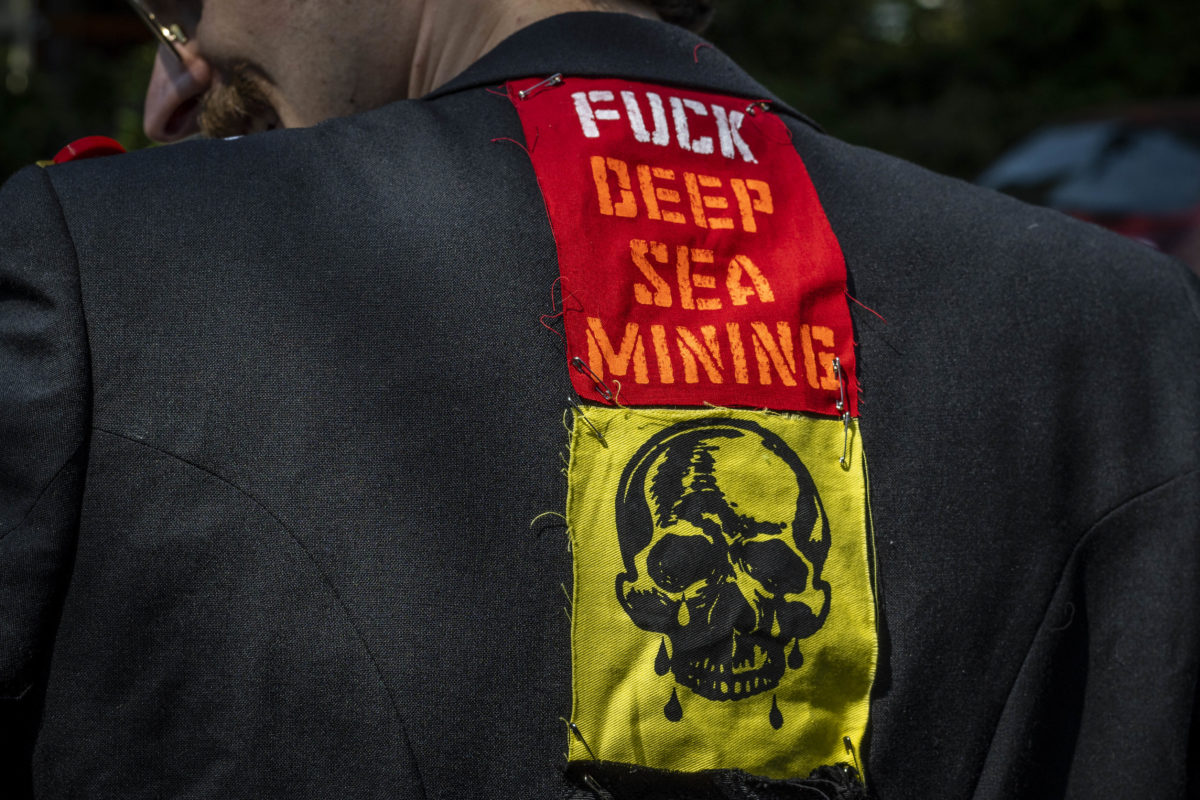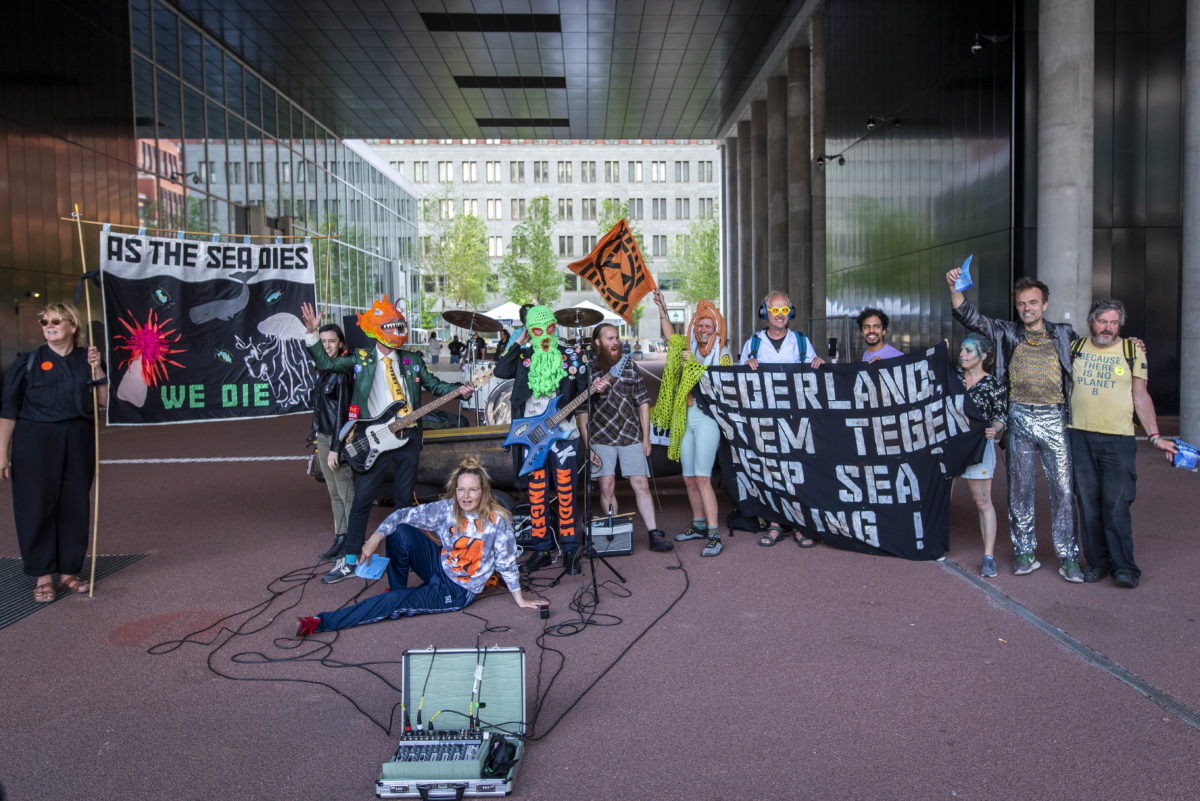FEEL THE NOISE
08.06.2023
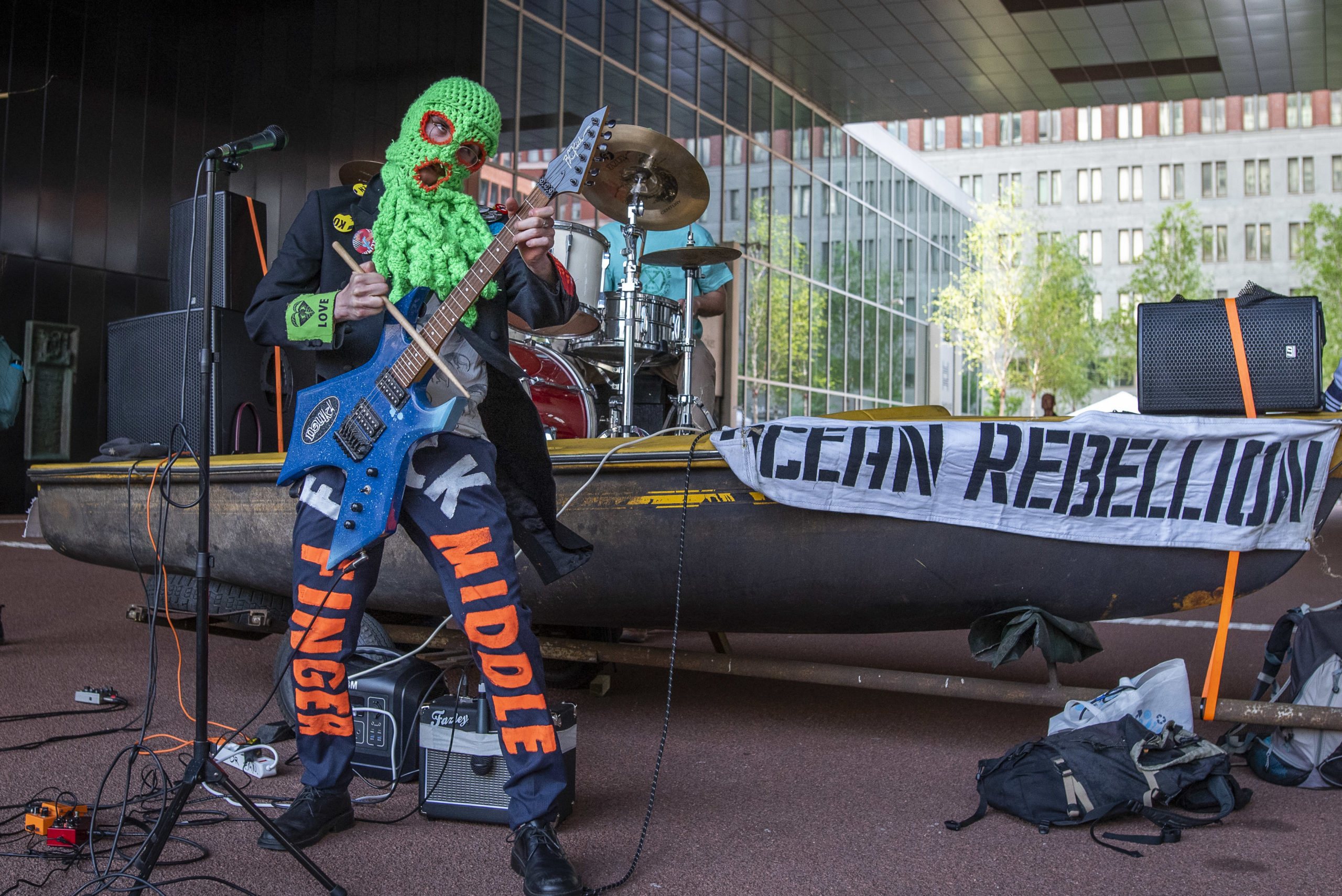
On World Ocean Day, Dutch Government Ministries were treated to another leg of the ‘Polymetallic Nodules’ ‘In Too Deep’ European Tour.
Fresh from the Deep Sea Mining Summit in London the worlds premier deep sea horrible heavy metal band played a set list of seabed favourites. The band, consisting of three deep figures with fish heads, treated the Dutch Government to favourites like ‘Butchering the Seabed’ in an unsolicited gig.
The ‘Polymetallic Nodules’ are in The Hague to act against the mining of heavy metals on the Ocean floor. Their involuntary listeners included the Ministries of Economic Affairs and Climate, Agriculture, Nature and Food Quality, Infrastructure and Water Management and Foreign Affairs, and the House of Representatives.
Mark Rutte was spotted head banging in the ministerial rest rooms to his personal favourite ‘We all die(plankton)’, or maybe he was just covering his ears – another of his favourite pastimes.
The fate of the Ocean depends on us all.
Our interventions depend on your support.
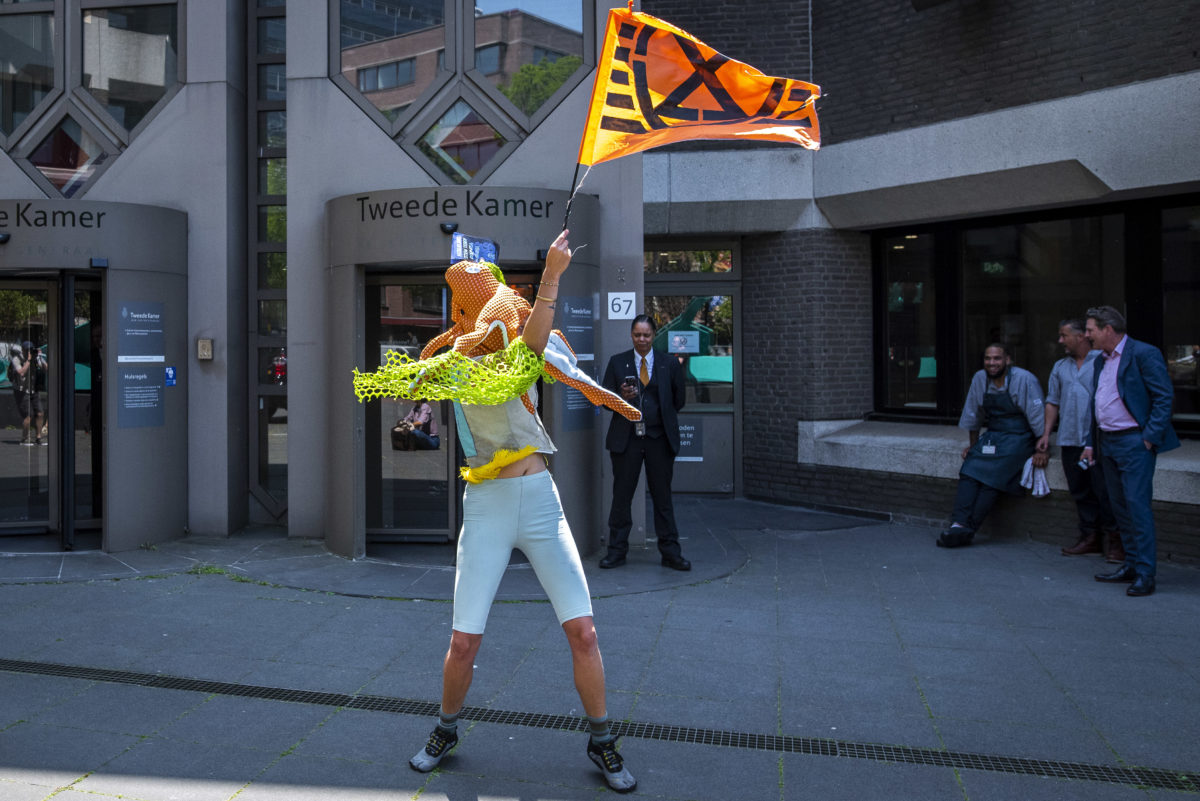
The ‘Polmetallic Nodules’ are gigging against forthcoming decisions to start mining the deep seabed. A plan that will have catastrophic ecological consequences.
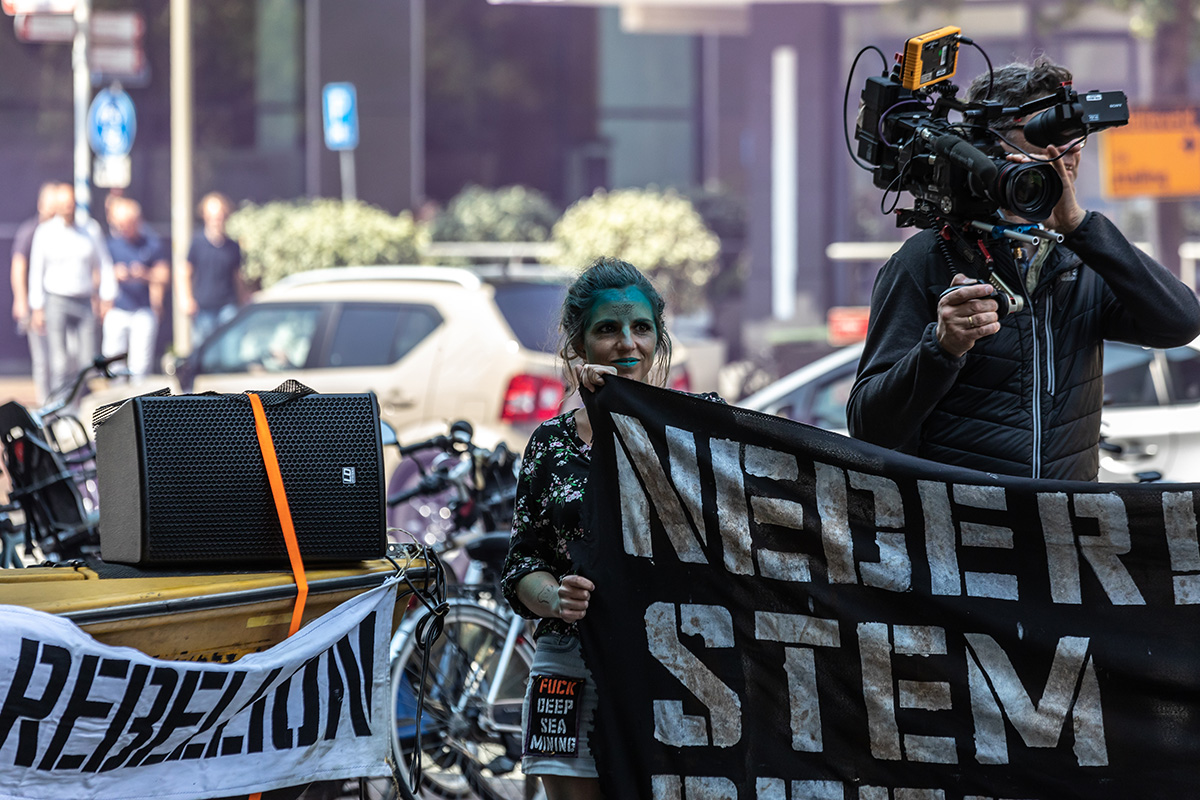
Why here and now?
The Dutch government will play an important role in deciding the future of deep sea mining. At the end of June the Dutch government will decide on its position, whether to support deep sea mining or not, and global decision-making will begin in July at the UN International Seabed Authority (ISA), of which the Netherlands is a member. If the ISA doesn’t say no to deep sea mining, then mining licenses might be issued anyway, with far-reaching and long-term consequences for ecosystems.
Various Dutch companies, like Allseas are very eager for deep sea mining to start, and we’re sure they’ve let the Dutch Government know just how eager they are too.
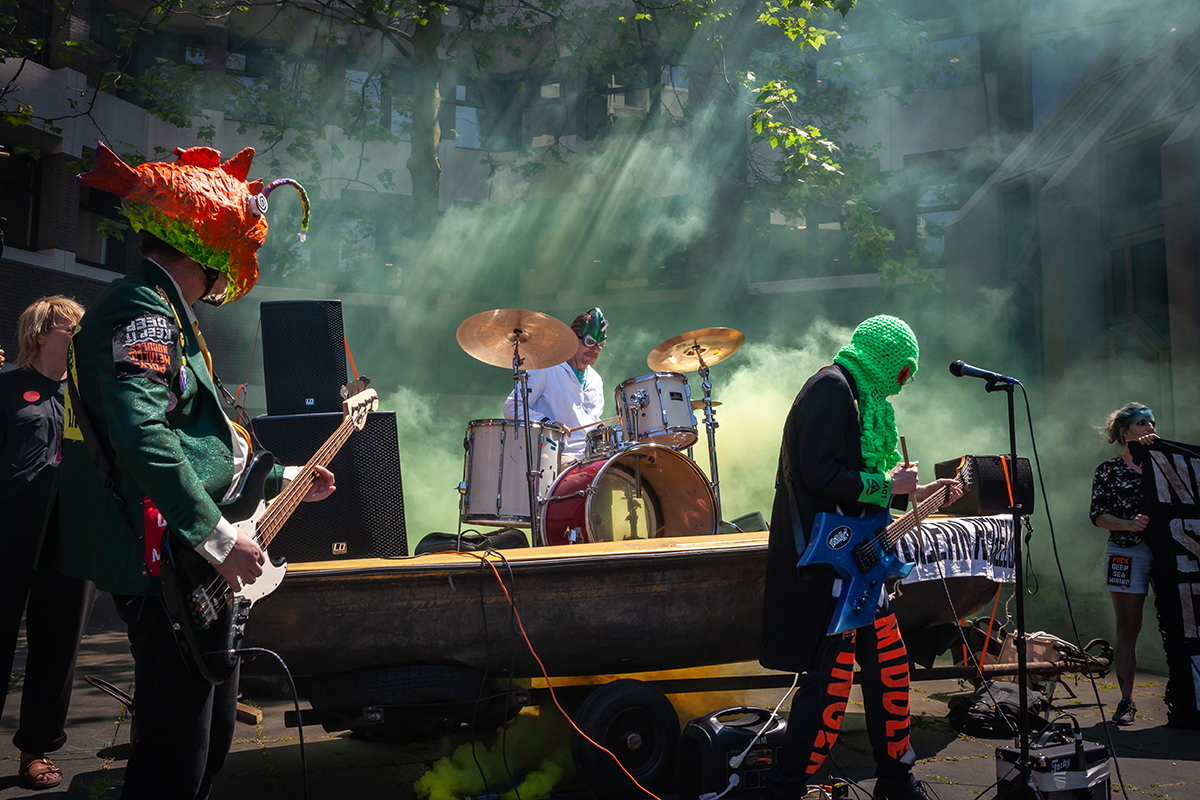
What is deep sea mining?
Parts of the bottom of the deep sea contain so-called ‘manganese nodules’. These are mineral rich chunks. These chunks are embedded in little oases of biodiversity, but they also contain metals that can be used in battery technology. Several companies want to mine the deep sea to bring these ‘nodules’ to the surface. These companies are using the ‘green transition’ as an excuse for their plan but this excuse just doesn’t stack up.
Why shouldn’t deep sea mining happen?
The deep sea is a fragile ecosystem, tests on the damage done to the deep sea bed in 1980s show that the deep seabed doesn’t recover even after decades of being left alone. Already more than 700 scientists, 14 countries and even companies such as Philips, Volkswagen and Google have spoken out against it.
On and around the manganese nodules live all sorts of marine life, including species we haven’t even discovered yet. Mining disturbs this seabed, causing far-reaching clouds of dust that suffocate all life. And the noise deep sea mining makes disorientates any marine life that relies heavily on sound to create its underwater maps for feeding, mating and communication. Furthermore, the deep sea is our greatest climate stabiliser: the effect on the buffer function of the ocean (the ocean stores vast quantities of C02) is unknown. Deep sea mining might increase ocean acidification and accelerate climate change to a catastrophic degree.
Deep sea mining accelerates climate change
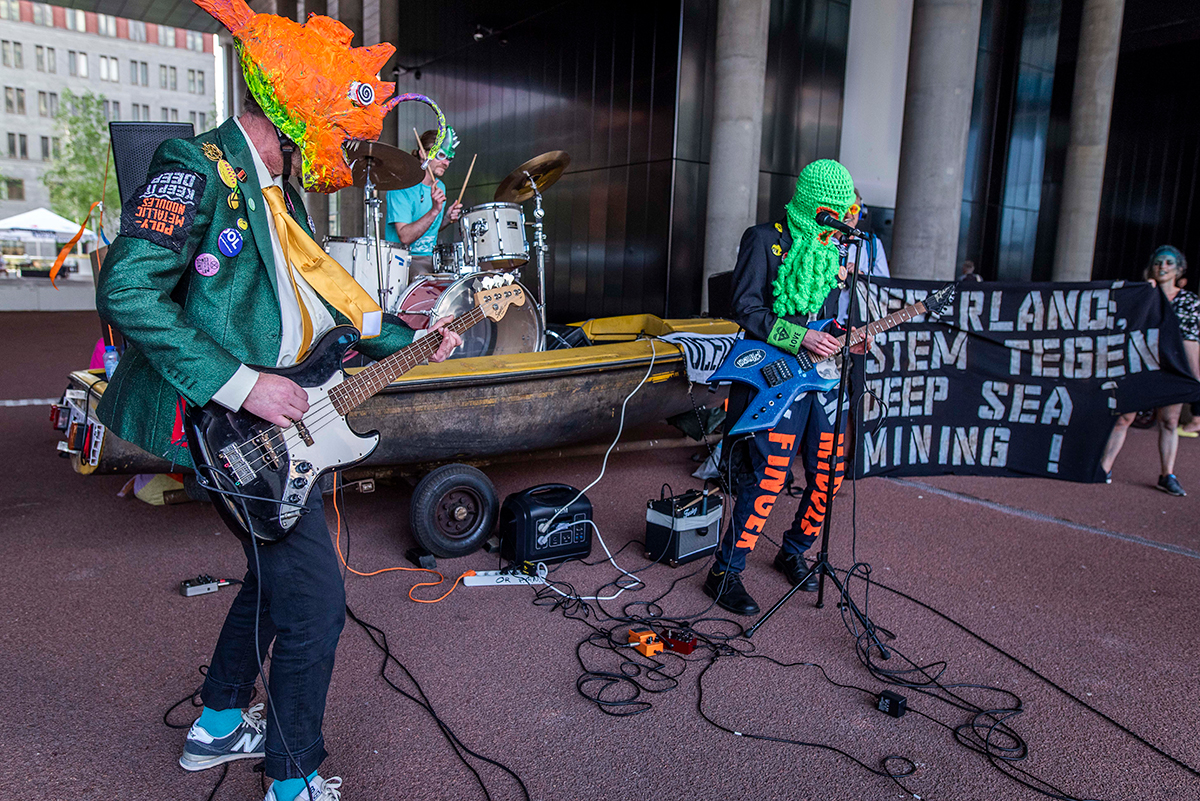
But what about our batteries?
Battery technology is progressing so fast that by the time deep sea mining is fully up and running these minerals will not be necessary for battery production. Plus urban mining and recycling can yield vast quantities of minerals if governments invest properly in circular economies of scale.
And don’t forget our addiction to consumption and ‘green’ technology is part of the problem. If we consume less we won’t need so many resources, just think of the waste the ‘developed’ world already creates – what on Earth are we doing?

Controversy
The ISA is supposed to manage the high seas for the ‘benefit of [hu]mankind’. At the same time it profits from selling licences to mine. How can a UN agency be allowed to profit from something it is supposed to protect? And why is a UN agency allowed to act against its own ‘precautionary principles’? Is profit the only measure the ISA is considering?
There is a lot of smoke around the ISA, its governance is opaque and seems to be designed to enrich the rich. Has the ISA gone rogue, and should the UN call it to heel?
Deep sea mining is similar to the fossil industry. When companies get greedy [really greedy], when they start talking about a gold rush, nature and humanity always pays the price. But this time we can stop this ecological disaster before it happens. Many countries have already spoken out against deep sea mining. Spain, France, New Zealand, Germany among others. Large companies have also spoken out, companies like Samsung, Google, Volkswagen, Philips, Renault.
Recently a petition was presented to politicians with more than 340,000 signatures by Women4Oceans.
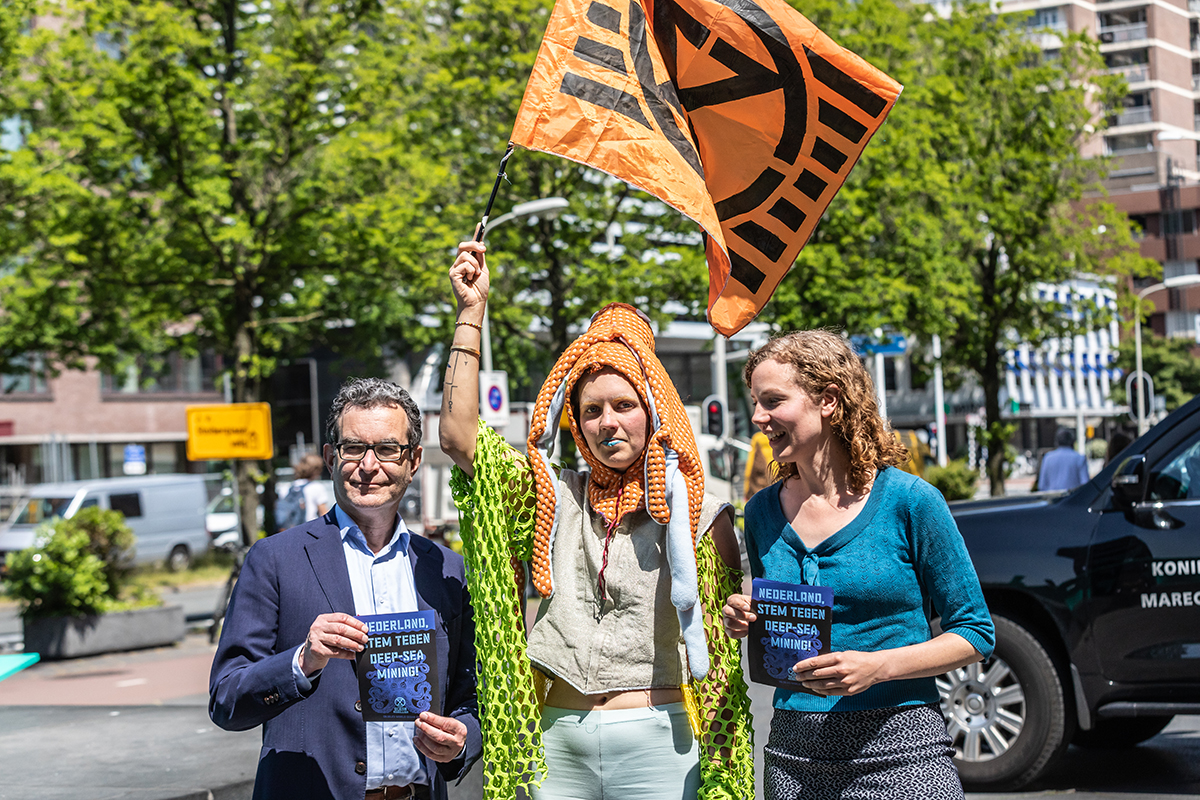
What do Ocean Rebellion, the Lookdown group, marine scientists and many other marine NGOs want?
All these groups are united in wanting the Dutch government to take a strong stance against deep sea mining. The Dutch Government must demand an end to deep sea mining on the grounds that sustainable deep sea mining does not exist. We ask the Dutch Government to stop listening to the greedy Dutch companies who talk about rich rewards and jobs. Any talk of wealth and jobs must be weighed up against the future of our planet. The Earth has no more margins for error, do not let greedy rich people speculate on the future of the planet, stop deep sea mining now.
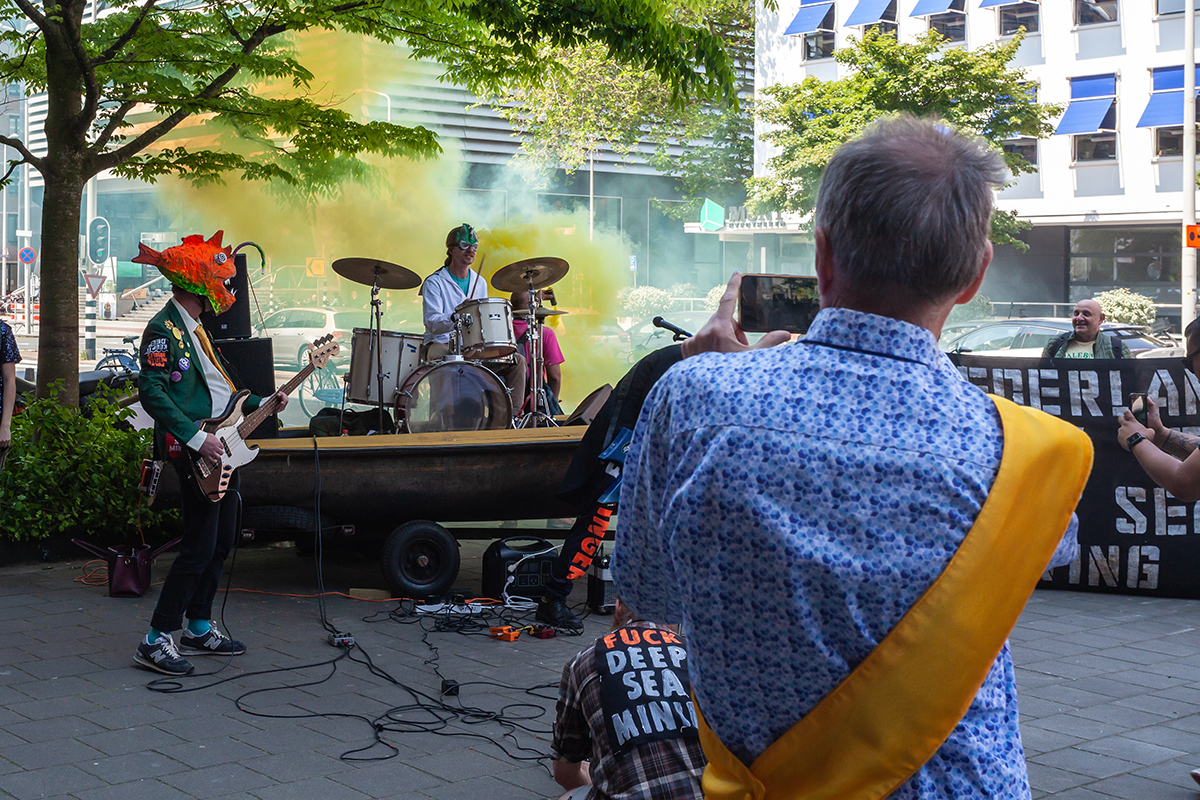
Aaron, engineer/activist:
‘Deep sea mining is extremely harmful to the seabed. The Testing of deep sea mining decades ago has shown that the ecosystem cannot recover. Deep sea mining will lead to an ecological disaster of unprecedented magnitude.’
Max, sailor/band manager/activist:
‘We will protect the ocean, one of the most vital organs of the earth, protect it to the max. We are going to ravage the eardrums of politicians until they take their deep sea mining plan off the table!’
Stefanie, band manager/activist:
‘We are tired of the earth being plucked empty to the last molecule where there’s money to be made. The Netherlands must stop protecting the interests of greedy maritime companies. Staying below 1.5 degrees has already failed, has the urgency not yet dawned? We will wake up your ideas with our bloody noise. Enjoy the gig!’
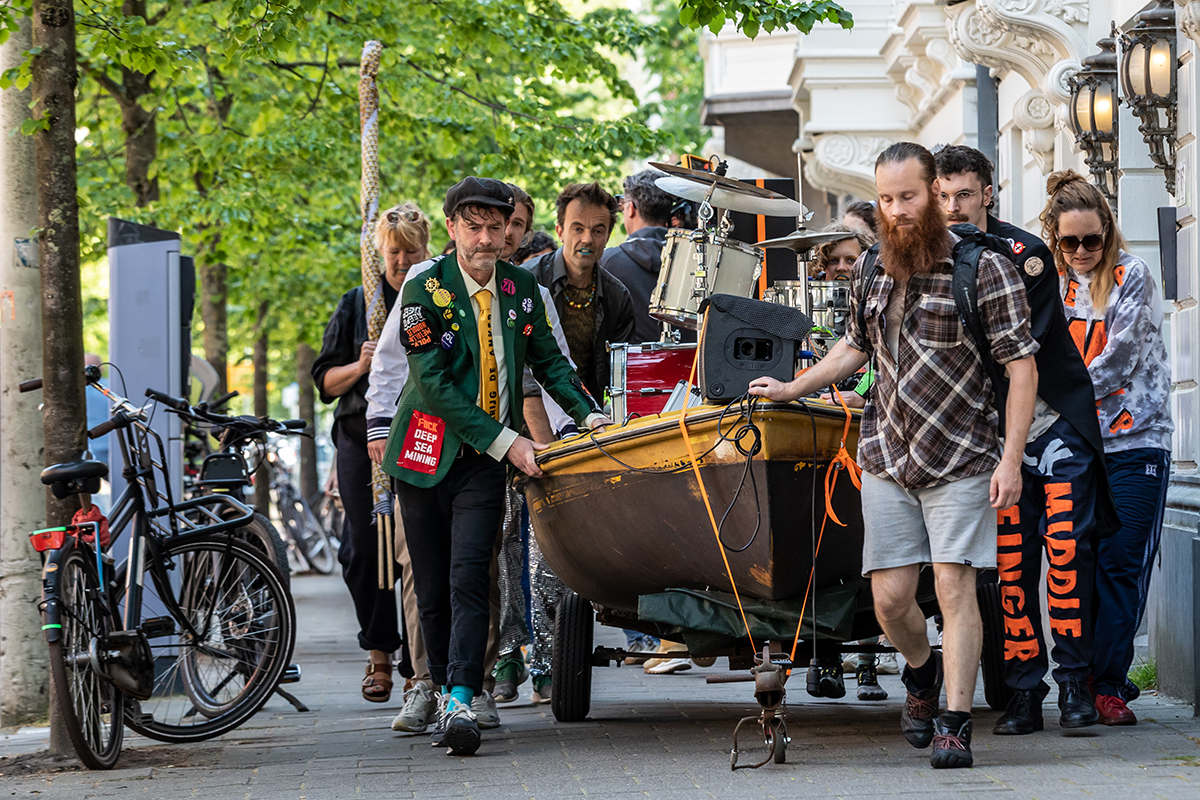
Photos from the top by: 1, 2, 5 and below James Petermeier; 3, 4, 6 , 7 and above, XR NL Photographer. Video by Jochie van de Reels.
The fate of the Ocean depends on us all.
We’ll let you know what we’re doing to help.
